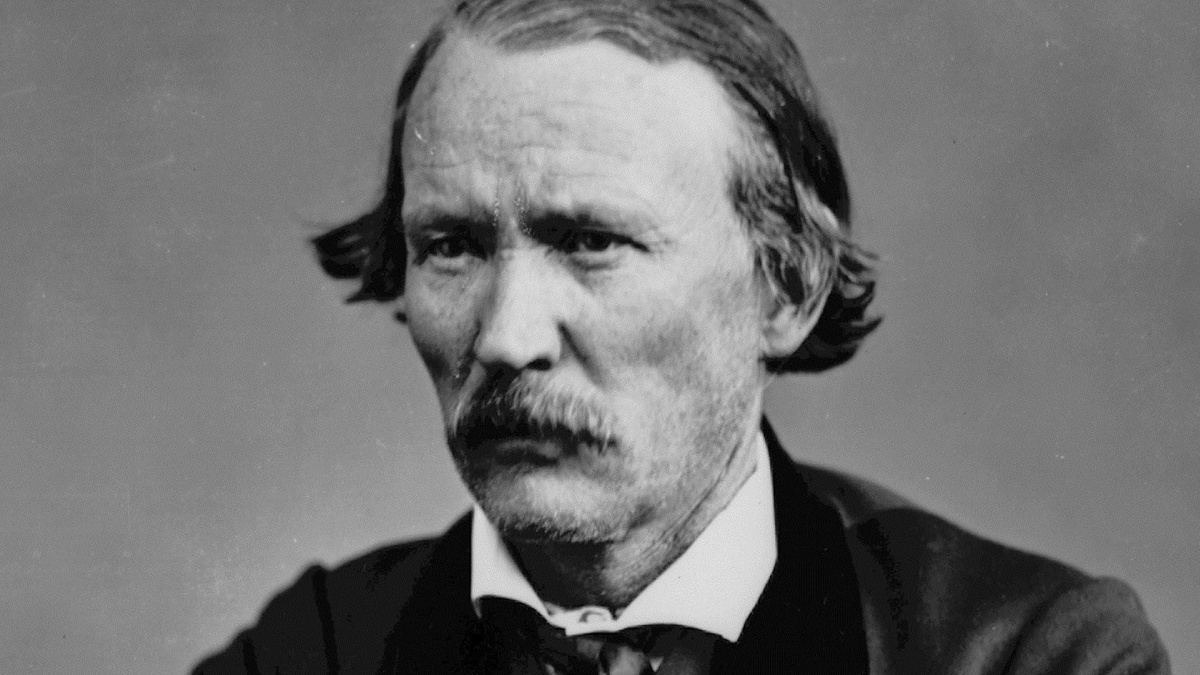
Robert Oppenheimer is one of the most influential figures in scientific history. Born on April 22, 1904, Oppenheimer was an American physicist who played a crucial role in the development of the atomic bomb during World War II. His leadership as the director of the Los Alamos Laboratory, where the Manhattan Project was based, marked a turning point in human history.
Beyond his significant contribution to the field of nuclear physics, Oppenheimer led a fascinating life filled with unique experiences and accomplishments. From his early academic brilliance to his later controversies, there is much to uncover about the man behind the groundbreaking discoveries.
In this article, we delve into 20 fascinating facts about Robert Oppenheimer, shedding light on his personal life, his contributions to science, and his enduring legacy. Prepare to be amazed as we explore the remarkable journey of this brilliant scientist.
Key Takeaways:
- Robert Oppenheimer, the “father of the atomic bomb,” was a brilliant physicist with a complex legacy. His work shaped nuclear science and international cooperation, leaving a lasting impact on the world.
- Despite his pivotal role in the atomic bomb’s development, Oppenheimer later advocated for arms control and international collaboration in science. His life and achievements continue to inspire scientists and scholars.
Oppenheimer was born on April 22, 1904.
Robert Oppenheimer, the renowned physicist and “father of the atomic bomb,” was born on April 22, 1904, in New York City. His birth marked the beginning of a life filled with extraordinary scientific achievements.
He attended prestigious universities.
Oppenheimer studied at Harvard University, where he completed his undergraduate degree in chemistry. Later, he pursued his graduate studies at the University of Cambridge and received his Ph.D. in physics from the University of Göttingen in Germany.
Oppenheimer made significant contributions to quantum theory.
Throughout his career, Oppenheimer made significant contributions to quantum theory, particularly in the field of spectroscopy. His research was instrumental in understanding the behavior of electrons in atoms.
He played a vital role in the development of the atomic bomb.
During World War II, Oppenheimer played a pivotal role in the Manhattan Project, the top-secret U.S. government program that developed the first atomic bomb. He served as the scientific director and played a crucial role in its successful realization.
Oppenheimer had a complex relationship with the atomic bomb.
Despite his involvement in the development of the atomic bomb, Oppenheimer expressed deep regret after witnessing the devastating power of the weapon. He became an advocate for arms control and voiced his concerns about the potential consequences of nuclear proliferation.
He was known for his brilliant mind.
Oppenheimer’s intellect and innovative thinking were widely recognized. He was highly respected within the scientific community and was renowned for his ability to tackle complex theoretical physics problems.
Oppenheimer was a brilliant teacher.
As a professor at the University of California, Berkeley, Oppenheimer mentored and inspired numerous students. His teaching style was known for its clarity and his ability to convey complex scientific concepts in a relatable manner.
He faced scrutiny during the McCarthy era.
Oppenheimer faced intense scrutiny and was accused of having communist associations during the McCarthy era. Although he was eventually cleared of espionage charges, the experience took a toll on his career and personal life.
Oppenheimer received numerous accolades for his work.
Robert Oppenheimer’s contributions to science were widely acknowledged. He received various prestigious awards and honors, including the Enrico Fermi Award, the Albert Einstein Award, and the Presidential Medal of Freedom.
He served as the chairman of the General Advisory Committee.
After the end of World War II, Oppenheimer was appointed as the chairman of the General Advisory Committee of the newly formed United States Atomic Energy Commission. He provided critical advice on nuclear policy and arms control.
Oppenheimer was passionate about education.
Throughout his life, Oppenheimer emphasized the importance of education. He believed in fostering a strong scientific community and advocated for the advancement of knowledge through research and teaching.
He had a deep interest in Eastern philosophy.
Oppenheimer developed a deep interest in Eastern philosophy and cultivated friendships with prominent Indian philosophers and spiritual leaders. He often drew inspiration from these teachings and incorporated them into his worldview.
Oppenheimer had a love for literature.
Besides his scientific pursuits, Oppenheimer had a deep appreciation for literature. He was well-read and often quoted works of poets and authors during scientific discussions.
He served as the director of the Institute for Advanced Study.
From 1947 to 1966, Oppenheimer served as the director of the Institute for Advanced Study in Princeton, New Jersey. During his tenure, he fostered an environment conducive to groundbreaking research and collaboration.
Oppenheimer played a vital role in shaping post-war science policy.
As a scientific advisor to several government agencies, Oppenheimer played a significant role in shaping post-war science policy. He advocated for the peaceful and responsible use of atomic energy.
He was deeply affected by the bombings of Hiroshima and Nagasaki.
The bombings of Hiroshima and Nagasaki deeply affected Oppenheimer. Witnessing the immense destruction caused by the atomic bombs led him to question the ethical implications of his own involvement in their development.
Oppenheimer was influential in the establishment of the Bulletin of the Atomic Scientists.
In 1945, Oppenheimer played a crucial role in the establishment of the Bulletin of the Atomic Scientists, a publication dedicated to addressing the emerging concerns of nuclear weapons and advocating for nuclear disarmament.
He continued his research and involvement in scientific communities.
Even after stepping down as the director of the Institute for Advanced Study, Oppenheimer remained active in scientific communities. He continued his research and participated in conferences, seminars, and discussions.
Oppenheimer was a steadfast advocate for international cooperation.
Throughout his career, Oppenheimer emphasized the importance of international collaboration in the scientific community. He believed that scientific advancements should transcend political boundaries and benefit all of humanity.
His contributions to science left a lasting legacy.
Robert Oppenheimer’s contributions to science and his involvement in the development of the atomic bomb left a lasting legacy. His work continues to be studied and debated, shaping the fields of physics and nuclear science.
These 20 fascinating facts about Robert Oppenheimer provide a glimpse into the life and achievements of one of the most influential scientists of the 20th century. From his role in the development of the atomic bomb to his lasting impact on science and international cooperation, Oppenheimer’s legacy is multifaceted and complex. His brilliance, dedication, and moral introspection continue to inspire generations of scientists and scholars.
Conclusion
Robert Oppenheimer was an enigmatic and influential figure in the field of science and the development of nuclear weapons. His role in the Manhattan Project and his contributions to theoretical physics have left a lasting impact on the world. From his early life and education to his controversial later years, Oppenheimer’s life was filled with fascinating facts that shed light on his multifaceted personality and legacy.
Through his brilliance, determination, and complex nature, Oppenheimer shaped the course of history. His story serves as a reminder of the power and responsibility that comes with scientific advancement. Whether admired or criticized, Oppenheimer remains an intriguing and significant figure in the realm of science and human history.
FAQs
1. What were Robert Oppenheimer’s major contributions to science?
Oppenheimer made significant contributions to theoretical physics, particularly in quantum mechanics and quantum electrodynamics. His most notable contribution was his leading role in the development of the atomic bomb as part of the Manhattan Project during World War II.
2. What is Oppenheimer best known for?
Oppenheimer is best known for his role as the scientific director of the Manhattan Project, which led to the creation of the first atomic bomb. He is also known for his famous quote, “Now I am become Death, the destroyer of worlds,” upon witnessing the successful detonation of the first atomic bomb.
3. Was Oppenheimer’s role in the development of the atomic bomb controversial?
Yes, Oppenheimer’s association with the development of nuclear weapons was highly controversial. After World War II, he faced scrutiny and was accused of having communist sympathies, which ultimately led to the revocation of his security clearance and a tarnished reputation.
4. Did Oppenheimer receive any recognition for his contributions?
Despite the controversy surrounding his later years, Oppenheimer received numerous prestigious honors and awards for his contributions to science. He was awarded the Enrico Fermi Award and the Presidential Medal of Merit, among others.
5. What was Oppenheimer’s impact on the scientific community?
Oppenheimer’s work on the atomic bomb and his contributions to theoretical physics have had a profound impact on the scientific community. His research and leadership paved the way for advancements in nuclear physics and the understanding of atomic energy.
Was this page helpful?
Our commitment to delivering trustworthy and engaging content is at the heart of what we do. Each fact on our site is contributed by real users like you, bringing a wealth of diverse insights and information. To ensure the highest standards of accuracy and reliability, our dedicated editors meticulously review each submission. This process guarantees that the facts we share are not only fascinating but also credible. Trust in our commitment to quality and authenticity as you explore and learn with us.


